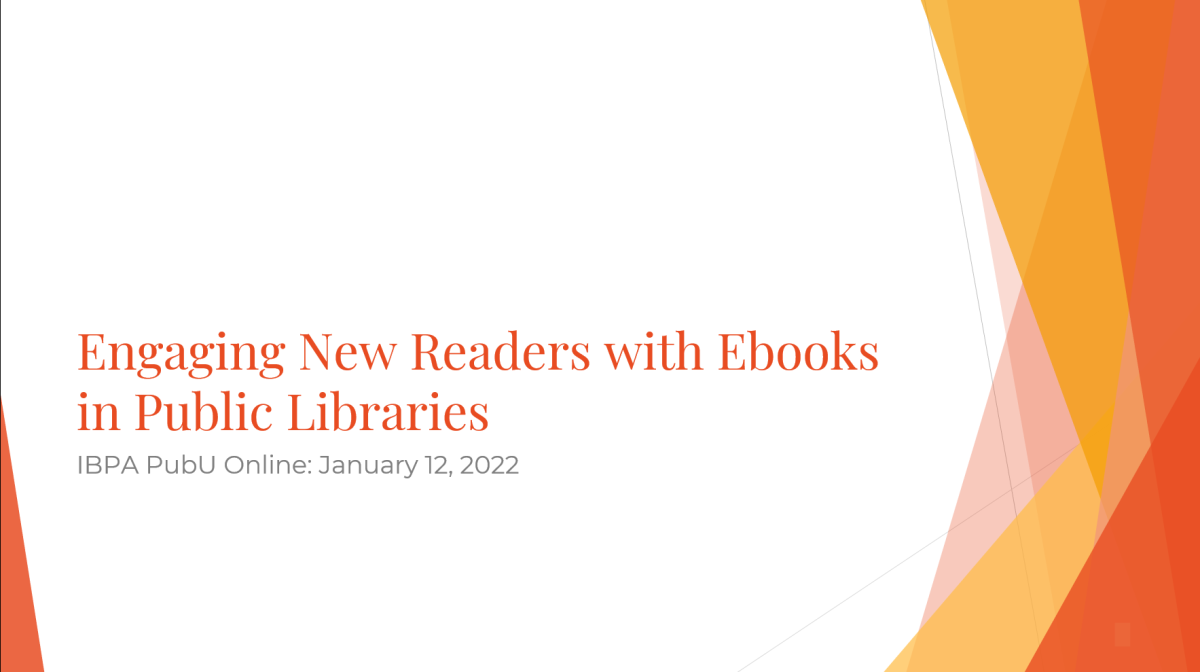Commentary on various aspects of publishing and marketing, primarily focused on books, magazines, and social media.
I had the pleasure of kicking off the new year by participating in IBPA's PubU Online webinar series, presenting "Engaging New Readers with Ebooks in Public Libraries" and I've posted my slides and written up my main presentation here as it pulled together a few threads I haven't addressed in one place before. Non-IBPA members and other library-curious types might find them useful as a starting point to learn more about how libraries work, and why they're an important partner for publishers of all sizes.
Five things for January 6, 2022. That's it! That's the excerpt.
Five things for December 9, 2021. That's it! That's the excerpt.
Five things for November 4, 2021. That's it! That's the excerpt.
Five things for June 10, 2021. That's it! That's the excerpt.

I used my own modest platform to build a following for DBW's Twitter account and early content. Rather than blow a limited marketing budget on traditional channels and standard registration promotions, I built our email list by producing three free webinars ahead of the first conference, and promoting them via paid emails to used Publishers Weekly's email list. I also launched a weekly "webcast" called DBW Roundtable where a panel of industry colleagues discussed the topic of the week, not only steadily building our audience and email list, but also serving as a test lab for potential conference programming and speakers. My content strategy wasn't to make DBW another traditional media outlet, but a trusted platform for informed opinions and industry expertise that offered the kind of actionable insights we promised at the annual conference—on a year-round basis. In doing so, it would not only ensure the continued relevance of the annual conference, it would also become a steady source of new ideas, content, and voices while also developing additional revenue streams.
While I've written about building and maintaining platforms myriad times, I've never purposefully looked back on the platforms I've built and examined how and why they deteriorated over time. Over the next few weeks I'm going to organize my thoughts and write about three of the most important ones—partly to properly document them, and partly to offer any relevant takeaways I might have.


